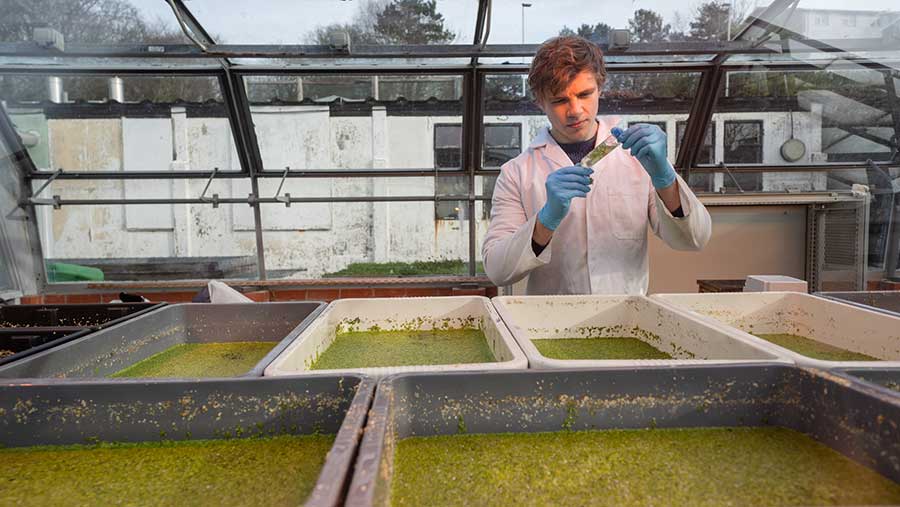Welsh farmers needed for project to grow feed on waste water
 © Aberystwyth University
© Aberystwyth University A project in Wales could help farmers grow a low-cost animal feed in their slurry and waste water stores and at the same time reduce storage requirements for nutrients.
Researchers at Aberystwyth University and University College Cork have embarked on a £1.3m study of how fast-growing duckweed can be grown as a protein source for livestock.
If successful, it could bring dual benefits – providing a feedstuff to replace imported protein while cleaning waste water to reduce the risk of agricultural pollution to watercourses.
See also: Outlook 2023: New routes to market crucial for pig sector
As it grows, duckweed removes nitrogen and phosphates from waste water, and this means the cleaned water could potentially be safe enough to be released into watercourses.
Project lead Dylan Gwynn-Jones said duckweed could make slurry a valuable resource.
“They are among the fastest growing plants, they are tolerant of ammonium, which is found in slurry, and they produce valuable essential amino acids that make it a promising feedstock,” he said.
With global food production set to increase, he said there was a “pressing need” for agriculture to be carbon-friendly, while protecting water quality and biodiversity.
“By helping the agricultural industry develop technology to produce valuable green protein from waste, the research effectively allows farmers to ‘make money from muck’,” Dr Gwynn-Jones said.
Farmers needed
He is looking for farmers to be part of the Brainwaves (Bilateral Regional Accord between Ireland and Wales for Agricultural Valorisation and Environmental Sustainability) project by visiting the brainwaves website.
“We are very keen for farmers and the wider agriculture sector to get involved in the project,” he said.
It comes as the rollout of the Welsh government’s Water Resources (Control of Agricultural Pollution) (Wales) Regulations 2021 continues.
From August 2024, farms will be required to have five months’ slurry storage capacity, or six months’ for pig and poultry producers.
